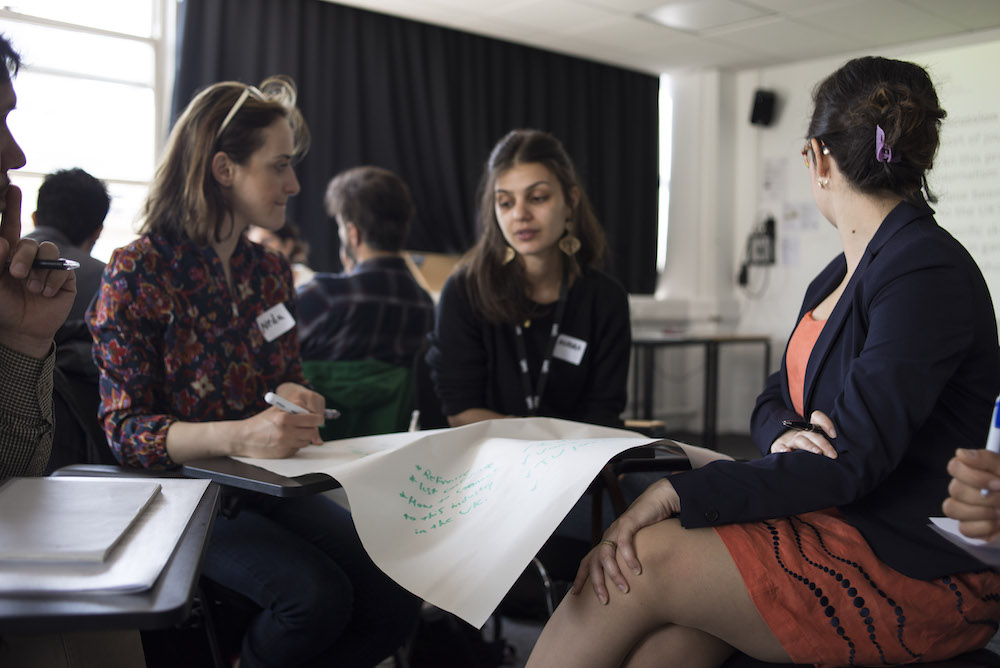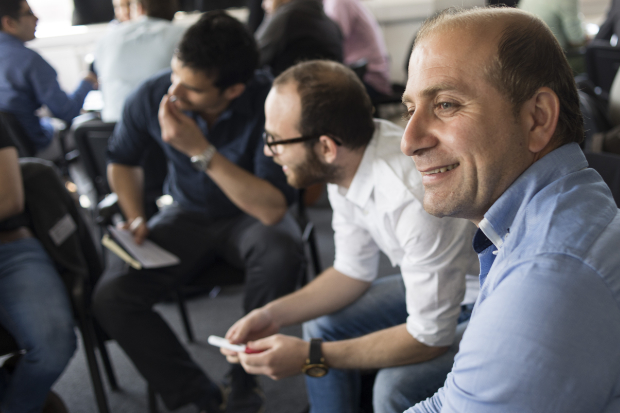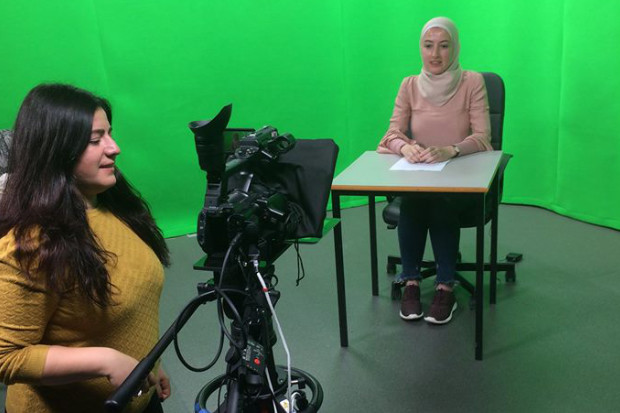Journalism is a notoriously hard sector to enter in the UK, but for refugees and exiled reporters with no established relationships or language skills, their chances are close to zero.
Now in its second year, the Refugee Journalism Project, established by the Migrant Resource Centre and London College of Communication, helps exiled reporters and refugees tackle these barriers to entry, supporting them to re-establish their careers in the UK.
Through group workshops, work placements and a one-on-one mentoring scheme, the project has seen many reporters go on to secure paid roles in the UK media, while others have used the project to help support their entrepreneurial ventures, or to set themselves up as cultural experts.
But Vivienne Francis, senior lecturer at London College of Communication and Refugee Journalism Project director, believes that the initiative is also of benefit to UK news organisations, who will be able to benefit from the diversity, culture and knowledge that refugees and exiled reporters can offer.
“Having journalists from different cultural backgrounds encourages newsrooms to encompass a great range of perspectives and can lead to richer, more varied content," she told Journalism.co.uk.
“We've seen these reporters strengthen the understanding and coverage of different global regions, and help news organisations access communities in the UK that have little visibility in mainstream journalism."

Temesghen Debesai, an African broadcaster who had to flee Eritrea over a decade ago, participated in the project. He later worked as a freelance producer at BBC World Service.
Debesai has found his particular set of skills to benefit the newsroom's conflict reportage, through first-hand knowledge of the situation and by having vital contacts on the inside.
In February 2018, while he was freelancing with BBC World Service for the Tigrinya Radio Service, there was a story about a fight that broke out between a group of Eritrean and Afghani youths in Calais, France.
The national media only focused on the fight between two groups of refugees in Calais. However, “for the Tigrinya (Eritrean) service, this story was important because it involves Eritrean youth,” explained Debesai.
“I made one phone call to a close friend who gave me a contact number of another Eritrean friend who volunteered inside Calais with a charity organisation assisting refugees there.
“Within 20 minutes, we were speaking directly with our new contact who was there at the time of the fight. He was able to provide us with facts and figures of what sparked the scuffles and the number of people injured.
"The BBC News Tigrinya Service interviewed him for the radio programme that was aired later on the same day.”
Francis noted that one of the difficulties of a project like this, despite its name, is the label of 'refugee' which can sometimes lead people to overlook the wealth of journalistic skills and solid experience the reporters have had in their own countries.
“This is quite a difficult shift as their status of being a refugee is sometimes what creates the opportunities in the first place,” she said.
“Through the asylum process, many have become disconnected to their identities as experienced, educated, and valued professionals, and this process has an obvious knock on effect on their self-esteem.
"Through the project, we are rebuilding this – the camaraderie within the group is particularly strong and the first cohort will continue to work with the project and help support the new intake."

The Refugee Journalism Project has been funded by the Open Society Foundation, Aziz Foundation and Google News Initiatives.
“It is about supporting the participants with their individual goals – we are just as proud of the person who got a contract with the BBC as we are with the person who had an article published in English for the first time.
“We always have to remain realistic about what can be achieved. Journalism is a competitive industry, and so it is impossible to say that we will find all participants regular work, but what we can do is improve their chances."
The project is supported by former participants, mentors, journalist and support workers, but Francis will soon be working with the Refugee Council, The Guardian Foundation and the University of Derby, which will enable the project to reap the benefits of a wide range of expertise.
“There is a rich pool of talent out there who could make a contribution to the industry,” added Francis.
“They just need a little bit of guidance and nurturing in order to achieve their potential.”
The Refugee Journalism Project is currently looking for new participants. Click here to learn more
Free daily newsletter
If you like our news and feature articles, you can sign up to receive our free daily (Mon-Fri) email newsletter (mobile friendly).
Related articles
- Delivering news during the war: reflections on EBU's visit to Ukraine
- Ukrainian journalists are at a breaking point. It is time to make a change
- Six career lessons in war and conflict reporting
- Unveiling the lessons of a war reporter's journey, with Andrea Backhaus
- Why journalists risk their lives for a story, with Dr Anthony Feinstein










